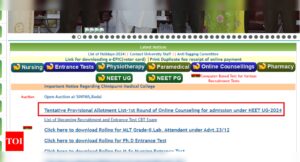[ad_1]

The tech industry continues to face significant layoffs, with 457 companies cutting a staggering 139,534 employees in 2024 alone. This follows a challenging trend, as 1,193 companies laid off 264,220 workers in 2023 and 1,064 companies dismissed 165,269 employees in 2022. Major tech giants like Intel, Cisco, and IBM have announced significant job cuts, with thousands of employees facing redundancy.In August 2024 alone, over 27,000 workers lost their jobs, raising concerns about the future of engineering roles. This trend has intensified fears about job security, particularly as automation and artificial intelligence continue to evolve and reshape traditional work landscapes.
The driving force behind many of these job cuts appears to be the rapid integration of AI technologies. While automation has long been a topic of discussion, the current phase of AI development is more sophisticated than ever, threatening to replace not just routine tasks but also roles that require critical thinking and creativity. As companies seek to streamline operations and enhance efficiency, engineers are left grappling with the implications of these transformative technologies. The question on everyone’s mind is: Are these job cuts primarily due to AI, or are they part of a broader economic trend?
Tech layoffs from January to September 2024
Jobs Facing Maximum Threat
Certain engineering jobs are particularly vulnerable to the onslaught of AI. Roles that involve repetitive tasks, such as data entry, basic coding, and even some aspects of software testing, are at high risk of automation. Additionally, jobs focused on routine analysis or documentation may find themselves replaced by AI-driven tools that can perform these functions faster and more accurately. Engineers who do not adapt to the changing landscape may find their skills becoming obsolete in an increasingly automated world.
Solutions for Engineers to Safeguard Their Jobs
To navigate this challenging environment, engineers must take proactive steps to protect their careers. Here are five key strategies:
Embrace Lifelong Learning: Engineers should continuously seek to expand their skill set, particularly in areas where AI cannot easily replace human judgment. Online courses, workshops, and certifications in AI, machine learning, and advanced programming can significantly enhance employability.
Develop Soft Skills: Skills such as creativity, critical thinking, and emotional intelligence are harder for AI to replicate. Engineers should work on these competencies, as they can differentiate them in the job market and add unique value to their teams.
Specialize in Niche Areas: By focusing on specialized areas of engineering—such as renewable energy, advanced robotics, or cybersecurity — professionals can position themselves in fields that are less likely to be automated and more in demand.
Adopt a Collaborative Mindset: Emphasizing teamwork and the ability to work alongside AI tools can make engineers invaluable assets. Understanding how to leverage AI to enhance productivity rather than viewing it as a threat can lead to new opportunities.
Stay Informed on Industry Trends: Keeping abreast of the latest technological advancements and market trends will enable engineers to anticipate changes in their fields. Joining professional networks and attending industry conferences can provide insights and help engineers adapt their skills accordingly.
Future-Proofing Your Career
In an era marked by rapid technological advancements, engineers must be proactive in safeguarding their careers against the potential disruptions caused by AI. By embracing lifelong learning, developing soft skills, specializing in niche areas, adopting a collaborative mindset, and staying informed on industry trends, engineers can not only survive but thrive in an evolving job market. The future may be uncertain, but with the right strategies, engineers can secure their place in an increasingly automated world.
Ready to lead with AI? Enroll now with GrowFast to transform your business strategy. Click here!
[ad_2]
Source link




